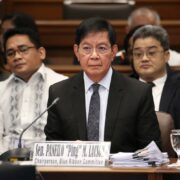Trump’s high-stakes climate casino

United States President Donald Trump’s decision to withdraw from the Paris Agreement marks an eerily familiar gamble. It evokes the high-stakes risks that characterized the collapse of his Atlantic City casino empire where, amid a wave of overconfidence, mismanagement, and crippling debt, his once grand resorts like the Trump Taj Mahal became symbols of failure. The chips have long since fallen, and the house is empty, yet Trump’s latest bet—a reckless wager on the planet itself—carries an even higher price.
The Paris Agreement, signed in 2015 by nearly every nation, is a cornerstone of climate policy, aiming to restrict global warming to well below 2 degrees Celsius above pre-industrial levels. It establishes an emission reduction mechanism, with countries submitting their nationally determined contributions.
Speaking to a throng of supporters, Trump once again dismissed the Paris Agreement as a “rip-off” that harmed American economic interests. He argued that the US should not bear the burden of climate action while major polluters, like China and India, evade similar regulations. On the surface, his rhetoric seems to espouse a neo-nationalist stance, but beneath this populist outrage lies a strategic calculus: a calculated maneuver to protect US fossil fuel interests and extract trade concessions from the global community. His approach prioritizes the production of oil, coal, and natural gas as a path toward “energy independence,” even if it risks global cooperation on climate action.
As the world’s biggest greenhouse gas emitter, the US made key commitments under Obama: $3 billion for the Green Climate Fund and a pledge to raise $100 billion annually for climate finance by 2020. But Trump rejects these promises, withholding climate finance from developing nations like the Philippines despite a $19.5 million allocation through the United States Agency for International Development (USAID) last year.
The US withdrawal from the Paris Agreement signals a shift in approach without severing ties entirely. Through an executive order, Putting America First in International Environmental Agreements, Trump halted any “financial commitment” and withdrew from associated agreements under the 1992 United Nations Framework Convention on Climate Change (UNFCCC).
However, Trump did not exit from the UNFCCC itself, leaving the US a voice in global environmental policy, and keeping its seat at the table for events like the Conference of the Parties in Brazil this November—unburdened by emissions targets or financial obligations.
The US remains a signatory to other global initiatives, such as the 1972 Stockholm Declaration on sustainable development, the 1987 Montreal Protocol on ozone depletion, and the 1992 Rio Declaration recognizing the “polluter pays” principle. But the defunding of international agencies like USAID, which traditionally champions environmental efforts, suggests that any remaining US influence will be diminished.
The risks are steep. A US retreat could create a power vacuum, with nations committed to climate action turning to China or the European Union for leadership. The EU aims for a 55 percent emissions reduction by 2030 and climate neutrality by 2050, while China invests $800 billion in renewable energy infrastructure.
Domestically, there are also signs of backlash. While subnational efforts by some US states, cities, and businesses pursue Paris Agreement goals independently, Trump’s preference for issues like plastic straws undermines the country’s ability to tap into the green economy.
To make matters worse, the ongoing trade war threatens to inflate prices, disrupt supply chains, and stifle growth. Amid wildfires, severe weather, and rising sea levels, Trump’s pivot diverges sharply from scientific consensus. The World Meteorological Organization recently confirmed 2024 as the hottest year on record, breaching the critical 1.5 degrees Celsius threshold. A study by renowned climatologist James Hansen and colleagues predicts that temperatures will stay above 1.5 degrees Celsius, possibly hitting 2 degrees Celsius by 2045. And yet, nations—some of them oil-rich petro-states—are embracing sustainability: the United Kingdom has closed its last coal plant, Norway incentivizes clean transport, and Saudi Arabia aims for 50 percent renewable electricity by 2030.
For all his bluster, Trump is playing a losing hand. As Nobel laureate William Nordhaus outlines in “The Climate Casino: Risk, Uncertainty, and Economics for a Warming World,” the stakes could not be higher. “We are rolling the climatic dice,” Nordhaus writes. “Unless forceful measures are taken, the outcome will produce surprises, and some of them are likely perilous.”
—————-
Noel B. Lazaro is general counsel, while Reeno E. Febrero is senior legal officer at Global Ferronickel Holdings, Inc. Their group received the In-House Team of the Year (Construction and Real Estate) at the Asian Legal Business (ALB)-Philippine Law Awards 2024, and In-House Legal Team of the Year 2024 Best Practice Management Award (Corporate Social Responsibility) for Asia and the Middle East from the In-House Community (IHC).

















